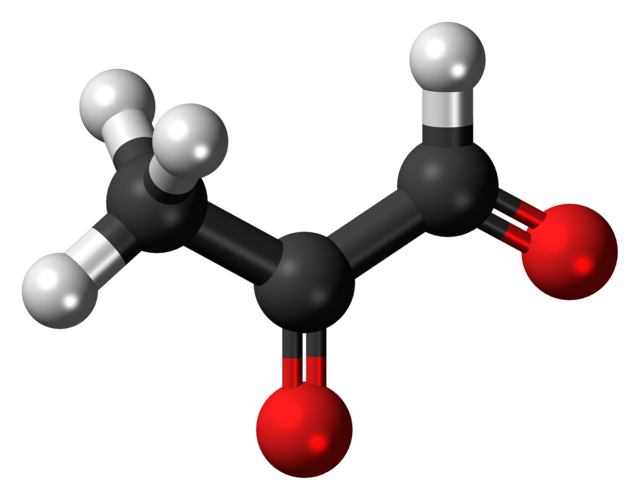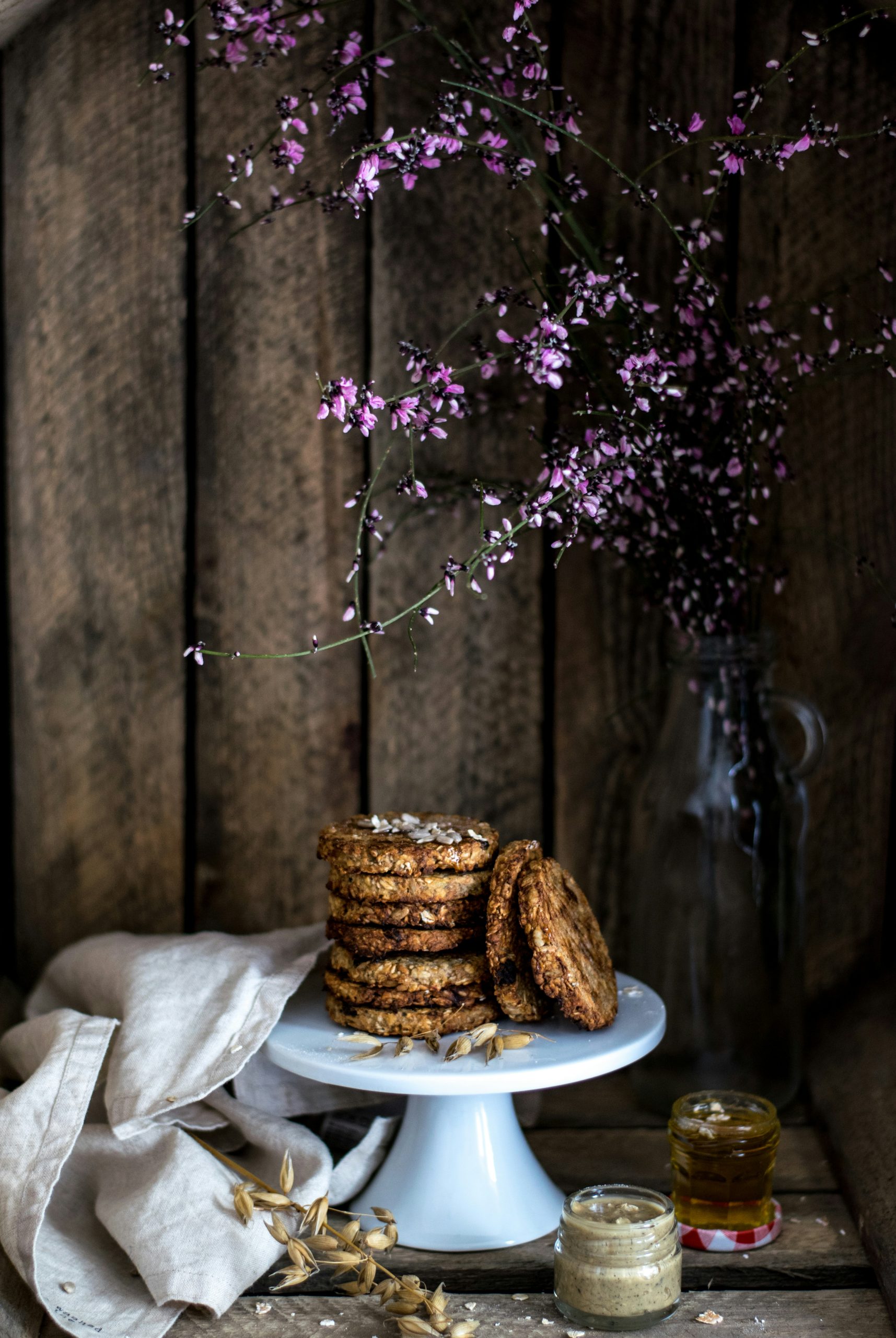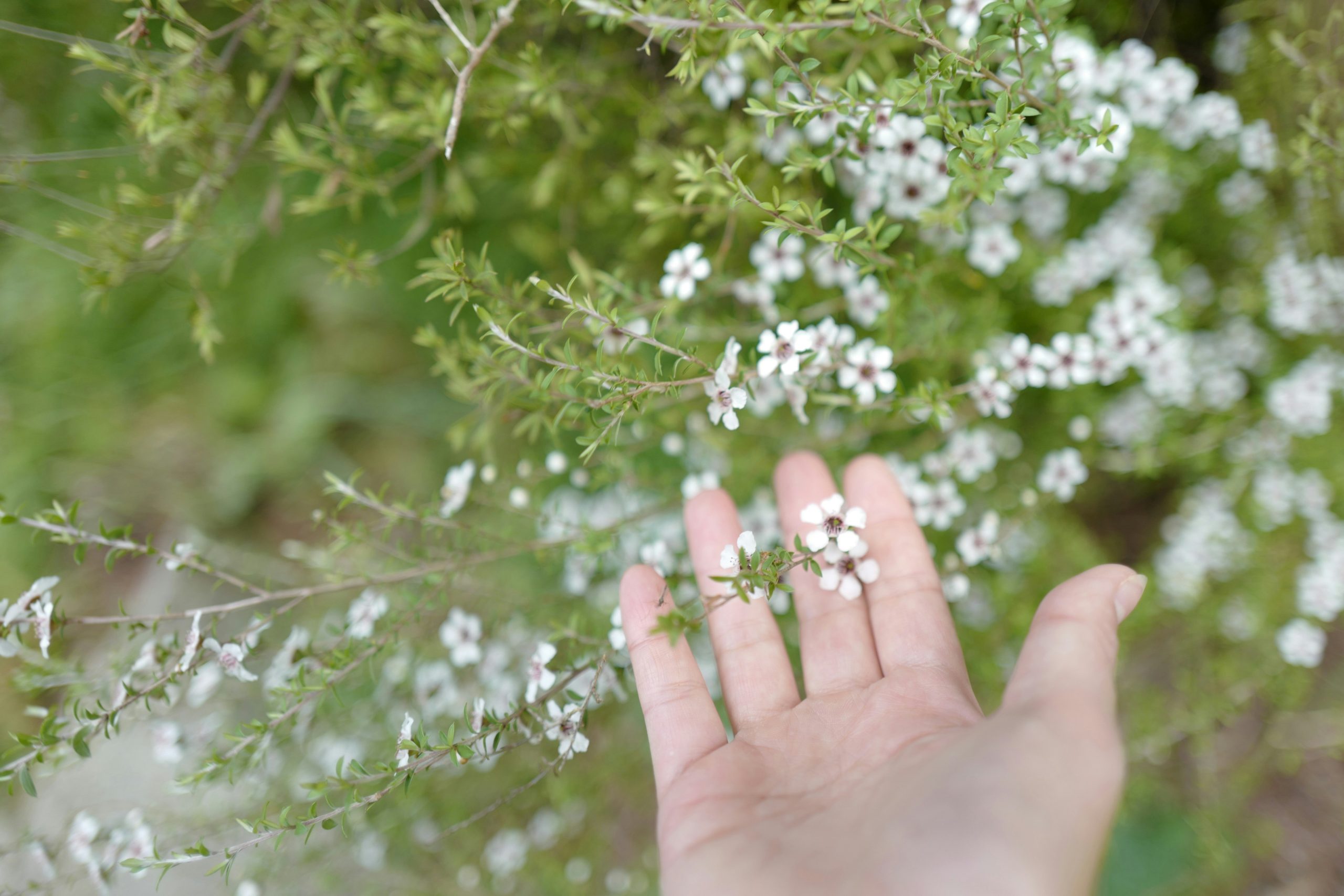
by genesis | Mar 15, 2025 | New Zealand Manuka Honey
When browsing Mānuka honey jars, you’ve likely noticed labels like “550 MGO” or “700 MGO”—but what does MGO really mean? MGO stands for Methylglyoxal, the naturally occurring compound behind Mānuka honey’s renowned antibacterial properties. This guide demystifies MGO and explains why high levels, like Genesis Honey Co.’s 700+ MGO honey, signify potent health benefits.
Chemistry 101: Understanding MGO
Methylglyoxal is a naturally occurring compound found in various foods but uniquely abundant in Mānuka honey. It develops naturally from dihydroxyacetone (DHA), a compound found in the nectar of the Mānuka flower, maturing within the honey over time. Its discovery by Dr. Peter Molan revealed the mystery behind Mānuka’s exceptional antibacterial activity.
How MGO Powers Antibacterial Action
MGO combats harmful bacteria by interfering with their proteins and DNA, effectively neutralizing them. Unlike traditional honey, Mānuka honey maintains its potency due to MGO’s stability, providing lasting antimicrobial effects. Simply put, if regular honey’s antibacterial power is like a gentle beer, high-MGO Mānuka honey delivers the punch of a fine whiskey—potent and highly effective.
MGO, UMF, and Other Ratings Explained
While UMF (Unique Mānuka Factor) ratings include MGO along with other components like leptosperin and DHA, MGO specifically quantifies the honey’s antibacterial potency. Here’s a quick conversion reference:
- UMF 5 ≈ MGO 83
- UMF 10 ≈ MGO 263
- UMF 15 ≈ MGO 514
- UMF 20 ≈ MGO 829
These metrics help consumers easily gauge the strength and quality of Mānuka honey.
Is Higher MGO Always Better?
Generally, yes—higher MGO levels (like 700+) signify stronger medicinal properties, particularly useful in wound care or infection management. For daily wellness, moderate MGO levels around 250+ may suffice. Ultra-high MGO honeys like Genesis’s 700+ are designed for maximum therapeutic benefits, though they may exhibit a stronger, more medicinal flavor profile due to concentration.
Validating MGO Levels
Authenticity is critical. Trustworthy companies rigorously test each honey batch for accurate MGO content, ensuring consumer confidence. Beware of synthetic MGO additives used by unscrupulous sellers. Genuine, certified Mānuka honey provides natural, potent antibacterial effects.
Frequently Asked Questions
Is MGO the same as UMF?
Not exactly. MGO measures the specific antibacterial compound, whereas UMF provides a broader quality rating that includes MGO and additional markers.
What level of MGO is beneficial?
For everyday health, MGO 100+ is sufficient. For enhanced health support, aim for 250+. Therapeutic uses often call for 500+ or higher.
Does Mānuka honey with 100 MGO have benefits?
Yes, it offers mild antibacterial benefits above regular honey, suitable for daily wellness rather than targeted medicinal use.
Why not take pure Methylglyoxal directly?
Pure MGO alone would be harsh and potentially unsafe. Mānuka honey naturally delivers MGO alongside beneficial nutrients, making it safe and effective.
Why Choose Genesis Honey Co.?
Our 700+ MGO Mānuka honey is rigorously tested, often surpassing the minimum potency standard. We prioritize transparency, ensuring you receive the highest quality honey with proven health benefits.
Conclusion
“MGO is the magic in Mānuka.” When choosing high-MGO honey, you’re investing in an exceptional, naturally potent resource unique to genuine Mānuka honey. Always check the MGO number—especially ours—to experience the real difference.
Experience authentic, high-potency Mānuka honey—shop Genesis Honey Co. today!

by genesis | Mar 15, 2025 | Manuka Honey Recipes, Mānuka Honey Skin Health, New Zealand Manuka Honey
For centuries, indigenous communities in New Zealand and Australia have revered the thick, golden nectar harvested from the tea tree (Mānuka) bush for its extraordinary healing properties. Today, modern science has validated this ancient wisdom, placing Genesis Honey Co.’s 700+ MGO Mānuka honey at the forefront of natural medicine.
Historical and Traditional Uses
The Māori of New Zealand traditionally used the Mānuka plant extensively for medicinal purposes, harnessing its bark and leaves to treat wounds and infections. With the introduction of European honeybees, the therapeutic value of the honey itself was quickly recognized. Similarly, Aboriginal Australians have long practiced bush medicine, utilizing honey from native bees for wound care and soothing ailments. Even Captain Cook’s crew brewed “tea” from Mānuka leaves, giving rise to its nickname “tea tree.”
In traditional medicine across cultures, Mānuka honey was valued for its ability to treat wounds, soothe sore throats, and remedy various skin infections, long before its mechanisms were scientifically understood.
Rediscovery and Modern Research
Mānuka honey’s global fame surged in the 1980s with groundbreaking research by Dr. Peter Molan at the University of Waikato. Dr. Molan uncovered the honey’s unique non-peroxide antibacterial activity, attributed primarily to methylglyoxal (MGO). This sparked decades of rigorous scientific inquiry.
By the late 20th century, Mānuka honey had become a medically accepted substance, leading to standardized measures like the Unique Mānuka Factor (UMF) rating. Hospitals began using licensed wound-care products such as Medihoney, solidifying its legitimacy in mainstream medicine.
Current Scientific Evidence
Today, numerous laboratory and clinical studies confirm Mānuka honey’s efficacy in wound healing, managing coughs, treating ulcers, and even promoting oral health. Recent research explores its potential benefits for chronic rhinosinusitis, reducing mucositis in cancer patients, and assisting in cystic fibrosis treatments alongside antibiotics. However, it is important to recognize the limits of these studies—claims such as curing cancer remain scientifically unsubstantiated.
Modern Applications in Natural Medicine
Many integrative medicine practitioners advocate using Mānuka honey for:
- Wound Care: Proven effective for minor wounds, diabetic ulcers, and skin infections, with medical supervision.
- Digestive Support: Complementary therapy for minor gastrointestinal issues and soothing sore throats.
- Veterinary Applications: Increasingly popular among veterinarians and pet owners for treating animal wounds and infections naturally.
These applications illustrate Mānuka honey’s broad versatility, making it a valuable component in contemporary natural medicine.
Authenticity Challenges
Mānuka honey’s popularity led to issues with authenticity and fraudulent products. Recent collaborative agreements between New Zealand and Australia aim to protect and certify authentic Mānuka honey, ensuring consumers receive genuine products.
Genesis Honey Co.’s Commitment
Genesis Honey Co. bridges traditional wisdom and scientific validation. Our honey is ethically sourced, minimally processed, and rigorously tested, preserving the beneficial properties that ancient healers prized and modern science measures. We remain committed to sustainability, community engagement, and supporting ongoing scientific research.
Frequently Asked Questions
What did indigenous people use Mānuka honey for?
Traditionally, Mānuka plant extracts and honey were used for wound healing, skin care, and soothing sore throats.
When was Mānuka honey discovered?
Mānuka honey gained international scientific recognition in the 1980s due to Dr. Peter Molan’s pioneering research.
Why is Mānuka honey famous today?
Its scientifically confirmed unique antibacterial properties and widespread medical applications contribute to its global fame.
Is Mānuka honey real or a hoax?
Authentic Mānuka honey is scientifically validated and effective. Skepticism arises mainly from counterfeit or low-quality products.
Conclusion
From indigenous healers to modern medical researchers, Mānuka honey represents a remarkable convergence of traditional knowledge and contemporary science. Genesis Honey Co. proudly continues this legacy, offering pure, authentic Mānuka honey to enhance your health and wellbeing.
Explore authentic Mānuka honey—shop Genesis Honey Co. today!

by genesis | Mar 15, 2025 | Manuka Honey Recipes, New Zealand Manuka Honey
If you cherish gourmet ingredients like truffle oil or single-origin chocolate, it’s time to discover their sweet counterpart—Mānuka honey. Genesis Honey Co.’s 700+ MGO Mānuka honey offers a unique culinary experience with its complex, caramel-like sweetness, herbal undertones, and rich aroma, making it an essential ingredient in any gourmet kitchen.
Tasting Notes of Mānuka Honey
Our premium Mānuka honey has a thick, creamy texture and a sophisticated flavor profile featuring earthy sweetness, delicate bitterness, and subtle umami notes. Its robust flavor complements and enhances dishes rather than merely sweetening them, similar to enjoying fine wines or aged cheeses.
Cheese & Charcuterie Pairings
Elevate your cheese and charcuterie boards with strategic Mānuka honey pairings:
- Sharp Cheddar or Blue Cheese: Mānuka’s sweetness perfectly offsets sharp, pungent cheeses.
- Goat Cheese or Prosciutto: Drizzle honey over crostini topped with creamy ricotta and prosciutto or fresh figs.
- Wine Pairings: Enjoy Mānuka honey with blue cheese and Port or Sauternes, or pair cheddar with Cabernet Sauvignon, accentuating complex flavor notes.
Entrées & Glazes
- Meat Glazes: Mānuka honey pairs exceptionally with duck, chicken wings, or pork, creating rich, savory glazes.
- Vegetable Roasts: Drizzle honey mixed with mustard on roasted root vegetables like carrots or sweet potatoes for deep caramelization.
- Marinades: Its distinct herbal aroma enhances marinades for tofu, salmon, and grilled vegetables, imparting subtle tea tree notes.
Desserts & Sweets
- Cheesecake Drizzle: Upgrade baked ricotta cheesecake or panna cotta with a sophisticated Mānuka honey drizzle.
- Homemade Ice Cream: Create indulgent Mānuka honey gelato or no-churn ice cream highlighting its unique flavor.
- Luxurious Baking: Use Mānuka honey to enhance granola, honey cakes, or artisanal pastries, making everyday treats luxurious.
Beverages & Cocktails
- Mānuka Hot Toddy: Combine whiskey, lemon, and Mānuka honey for a comforting nightcap.
- Herbal Teas and Lattes: Infuse chamomile or matcha lattes with Mānuka honey for depth of flavor and added health benefits.
- Craft Cocktails: Substitute simple syrup with Mānuka honey syrup in an Old Fashioned or gin cocktail for a distinctive twist.
Sustainability & Ethical Sourcing
At Genesis Honey Co., sustainability and ethical sourcing are fundamental. Our honey is hive-to-table, ethically harvested from pristine environments, ensuring purity and supporting the health of bees and beekeepers alike. This commitment enriches the story behind each delicious drop.
Frequently Asked Questions
Can I use Mānuka honey in coffee?
Absolutely! It adds unique flavor complexity—experiment to find your perfect balance.
Why is Mānuka honey used in gourmet cooking?
Its distinctive flavor, luxurious texture, and rarity make it ideal for creative culinary applications.
Does cooking affect Mānuka honey’s benefits?
High heat can slightly reduce some benefits, but used as a finishing drizzle or at lower temperatures retains most properties.
What fruits pair best with Mānuka honey?
Try earthy fruits like figs, pears, and apples, or sweeter fruits like bananas and berries.
Genesis Honey Co.’s Gourmet Edge
Genesis Honey Co.’s 700+ MGO Mānuka honey is more than a wellness supplement—it’s a gourmet ingredient celebrated by chefs and food enthusiasts. Experience its unmatched culinary versatility and taste.
Conclusion
Elevate your culinary creations effortlessly with Genesis Honey Co.’s premium Mānuka honey. Transform everyday dishes into gourmet experiences with just a drizzle.
Discover gourmet inspiration—shop Genesis Honey Co. today!

by genesis | Mar 15, 2025 | Manuka Honey NZ
With antibiotic-resistant infections rising globally, natural alternatives like Genesis Honey Co.’s 700+ MGO Mānuka honey are increasingly valued for their powerful antibacterial properties. Often called ‘nature’s antibiotic,’ Mānuka honey has garnered attention from researchers and healthcare professionals alike for its unique antimicrobial abilities.
The Science Behind Mānuka Honey’s Antibiotic Properties
Mānuka honey’s standout antibacterial effects come from its high levels of methylglyoxal (MGO), a compound proven effective against many bacterial strains. Unlike regular honey, Mānuka honey exhibits powerful non-peroxide antibacterial activity, allowing it to combat antibiotic-resistant bacteria, including MRSA and certain superbugs, as supported by numerous scientific studies.
Topical Uses: Wound Care and Skin Health
Applying Mānuka honey topically has become increasingly common for minor wounds, burns, and skin infections. Hospitals worldwide have adopted medical-grade Mānuka honey dressings to aid healing and prevent infection. At home, applying a thin layer of high-quality Mānuka honey on minor cuts, scrapes, or acne spots can effectively reduce the risk of infection and accelerate healing.
Internal Uses: Everyday Wellness
- Sore Throat and Cough Relief: A teaspoon of Mānuka honey soothes throat irritation and reduces coughing naturally, offering quick symptomatic relief.
- Digestive Health: Incorporating Mānuka honey daily can help balance gut flora, soothe minor digestive inflammation, and even inhibit harmful bacteria like H. pylori.
- Oral Hygiene: Its antibacterial properties make Mānuka honey effective in oral hygiene routines, potentially reducing plaque-forming bacteria and soothing minor mouth ulcers.
Safe Usage and Precautions
- Do Not Replace Prescribed Antibiotics: For severe or serious infections, always follow your healthcare provider’s recommendations.
- Moderation: Typically, 1-2 teaspoons per day is adequate for general wellness.
- Infant Caution: Avoid honey for children under one year old due to the risk of botulism.
- Sugar Content: Monitor intake, particularly if managing diabetes or other blood sugar conditions.
Frequently Asked Questions
Can Mānuka honey treat infections?
Mānuka honey can effectively manage minor topical infections and support internal health. However, it should complement rather than replace traditional medical treatments for serious infections.
How do you apply Mānuka honey to wounds?
Clean the wound first, apply a thin layer of medical-grade honey, and cover with a sterile dressing. Replace daily until healed.
What strength of Mānuka honey is medicinal?
700+ MGO (UMF 18+) provides powerful antibacterial benefits suitable for both topical and internal health.
Does heat affect Mānuka honey’s antibacterial properties?
Yes, excessive heat can reduce some beneficial enzymes, although MGO itself is relatively stable. Avoid boiling; instead, use it at moderate or cool temperatures.
Why Choose Genesis Honey Co.?
Not all Mānuka honey is created equal. Genesis Honey Co. guarantees purity and potency through rigorous testing, ensuring our 700+ MGO honey delivers reliable antibacterial and health-promoting benefits you expect.
Conclusion
Integrating Mānuka honey into your daily life offers impressive health benefits with minimal risk. Whether it’s wound care, gut wellness, or immunity support, high-quality Mānuka honey is an invaluable natural addition to your health routine.
Experience the antibiotic power of Genesis Honey Co.’s 700+ MGO Mānuka Honey—Shop Now!

by genesis | Mar 15, 2025 | Manuka Honey NZ
Natural remedies for digestive health are gaining popularity as people seek gentle yet effective ways to ease conditions like acid reflux, stomach ulcers, and irritable bowel syndrome (IBS). Could a spoonful of honey a day keep the gastroenterologist away? Emerging research suggests Genesis Honey Co.’s 700+ MGO Mānuka honey might indeed offer substantial benefits for your gut.
Fighting Ulcers and H. pylori
Stomach ulcers are commonly linked to infections by the bacterium Helicobacter pylori (H. pylori). Research indicates that Mānuka honey effectively inhibits H. pylori growth in laboratory studies. A study involving 294 participants found regular honey consumption correlated with reduced rates of H. pylori infection. While honey alone isn’t a standalone treatment for ulcers, it can serve as a beneficial complementary measure alongside medical treatments advised by healthcare providers.
Promoting Beneficial Gut Bacteria
Mānuka honey acts as a powerful prebiotic, nourishing beneficial gut bacteria. Like other raw honeys, it contains natural oligosaccharides that feed friendly gut flora such as bifidobacteria. Additionally, Mānuka honey’s strong antimicrobial action may balance gut flora by suppressing harmful bacteria, such as Clostridium difficile (C. diff), promoting overall digestive harmony.
Soothing Digestive Inflammation
For those experiencing digestive inflammation from gastritis or inflammatory bowel diseases (IBD) like Crohn’s or ulcerative colitis, Mānuka honey’s anti-inflammatory properties can help soothe and heal irritated gut linings. While it isn’t a cure for chronic digestive disorders, its natural anti-inflammatory effects may provide significant symptomatic relief and enhance overall comfort.
How to Use Mānuka Honey for Digestive Health
- Morning Ritual: Consume 1 teaspoon of Mānuka honey on an empty stomach, followed by warm water to calm and nourish your digestive tract.
- Aloe Vera Combo: Blend Mānuka honey with aloe vera juice for enhanced gut-soothing benefits.
- Probiotic Foods: Sweeten probiotic-rich yogurt or kefir with honey to amplify gut-friendly benefits.
- Acid Reflux Relief: A teaspoon of Mānuka honey can coat the esophagus, potentially reducing acid reflux symptoms. Mixing it with apple cider vinegar may further enhance digestive relief.
Frequently Asked Questions
Is Mānuka honey good for acid reflux?
Yes, its soothing texture can coat and calm throat and stomach irritation, but results may vary individually.
How does Mānuka honey help IBS?
Mānuka honey can potentially balance gut flora and reduce inflammation associated with IBS. However, IBS sufferers on low-FODMAP diets should use caution due to honey’s fructose content.
Can Mānuka honey cause botulism?
Botulism risk exists only for infants under one year old. Adults and older children can safely enjoy honey.
How much Mānuka honey should I take for ulcers?
Typically, 1-2 teaspoons daily, ideally before meals. Always consult your doctor for personalized guidance.
Scientific Credibility & Caution
While promising, the benefits of Mānuka honey for digestive health are best viewed as complementary rather than primary treatments. Continuing ongoing medical care, including prescribed medications for serious digestive issues, is crucial. Further human clinical trials are needed to fully validate Mānuka honey’s digestive health benefits.
The Genesis Honey Co. Difference
Genesis Honey Co. ensures genuine, high-MGO Mānuka honey, free from adulteration. Our premium quality guarantees the potency necessary for potential gut health benefits, unlike lower-quality or blended products.
Conclusion
Gut wellness involves a complex balance, but incorporating Mānuka honey into your diet is a simple, delightful step with potential benefits. Enjoy this natural superfood while supporting your digestive health.
Discover Genesis Honey Co. today and enhance your gut wellness naturally!





Recent Comments